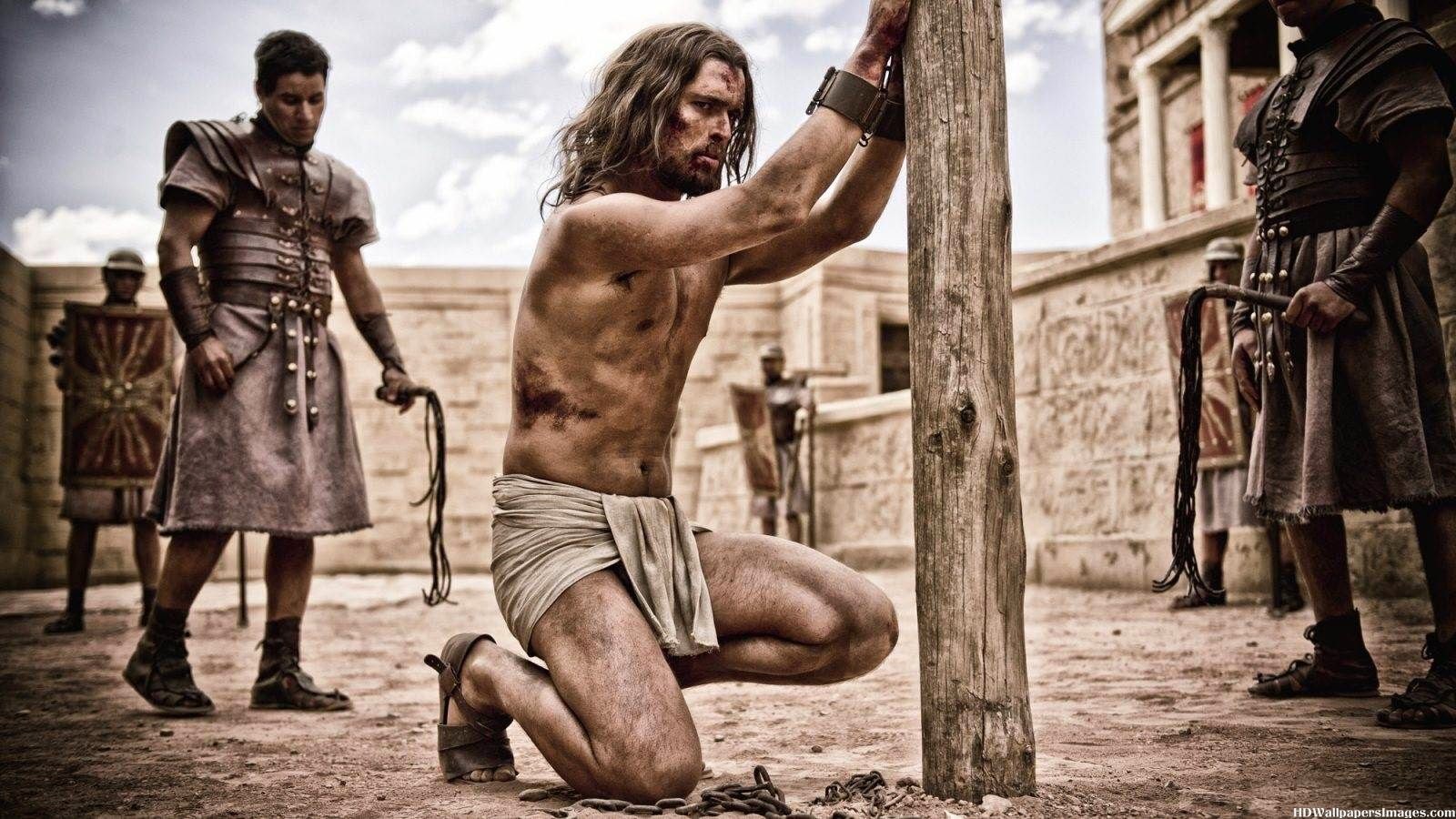- Back to Home »
- Son of God (2014) reviewed by Tyler Smith
Friday, March 14, 2014
Son of God (2014)
Cast:
Diego Morgado, Amber Rose Revah, Sebastian Knapp, Greg Hicks, Darwin
Shaw, Roma Downey, Louise Delamere
Director: Christopher
Spencer
Synopsis: John,
the last surviving disciple of Christ, is living in exile as he tells his story
about the man who claimed to be God, Jesus Christ of Nazereth (Diego Morgado). Closely following the Gospel of John,
he begins “In the beginning” and proceeds to tell of the birth of Jesus of
Nazereth. He then follows Jesus’ life as
he teaches and grows his ministry throughout Israel. As Jesus’ ministry grows, tension grows as religious
leaders become jealous of his increasing popularity and his bold
teachings. Political tension is also
peaking as Israel remains under Roman occupation, and Jesus confronts both
these tensions as he reveals his true identity and mission in Jerusalem.
Reviewer’s
Rating: 4/5 Reels
Review:
 Son of God will most likely
receive very mixed reviews because of the nature of the genre of the film and
how closely it follows its source material.
It is a biopic of Jesus Christ of Nazareth that draws all of its
material directly from the Gospel of John. Those familiar with the book
and hoping the film will be faithful to it will not be disappointed. The film takes most of the dialogue from the
text and “plays it safe,” in the sense that there are no controversial
additions to the story.
Son of God will most likely
receive very mixed reviews because of the nature of the genre of the film and
how closely it follows its source material.
It is a biopic of Jesus Christ of Nazareth that draws all of its
material directly from the Gospel of John. Those familiar with the book
and hoping the film will be faithful to it will not be disappointed. The film takes most of the dialogue from the
text and “plays it safe,” in the sense that there are no controversial
additions to the story.
Those who are not familiar with the Gospels of
Jesus might feel the story line of the film to be somewhat sporadic, skipping
30 years of Jesus’ life and showing many scenes of teachings and miracles with
little explanation or character development. Context is helpful here, noting that the
source material was not a chronological biography, but a collection of stories told in such a way as to evoke a
certain image of Jesus for a particular audience.
 Another reason for the sense of a sporadic plot
is that many of the scenes were taken directly out of the TV mini-series, The
Bible. They were mixed with new
scenes and edited together to focus on this story of Jesus’ three years of
ministry before his death. Overall, I
believe the director was effective in weaving the different stories to create a
unified thread throughout the film. He
accomplishes this by focusing on the rising tensions of the Jewish leaders
towards Jesus and the growing Jewish disdain for their Roman occupation.
Another reason for the sense of a sporadic plot
is that many of the scenes were taken directly out of the TV mini-series, The
Bible. They were mixed with new
scenes and edited together to focus on this story of Jesus’ three years of
ministry before his death. Overall, I
believe the director was effective in weaving the different stories to create a
unified thread throughout the film. He
accomplishes this by focusing on the rising tensions of the Jewish leaders
towards Jesus and the growing Jewish disdain for their Roman occupation.
The film reaches a strong climax toward the end as
Jesus reaches Jerusalem. There is some
high caliber acting on the part of Greg Hicks, playing Pilate, and Darwin Shaw,
playing Peter. Jesus also is played
convincingly given the gravity of the role, with Portuguese actor Diego Morgado
emphasizing the human side to Jesus. At
times Jesus seems almost surprised by his miracles, and at other times his
horror over what he knows is coming can be felt by the viewer.
 The film displays how great of an uproar Jesus
had created, and how everyone around him was forced to acknowledge him and
decide what they believed about him. The
film handles the major biblical events of the last supper, crucifixion, and
resurrection very well and adds a convincing element by having the film told
from the perspective of John who was left stranded on an island.
The film displays how great of an uproar Jesus
had created, and how everyone around him was forced to acknowledge him and
decide what they believed about him. The
film handles the major biblical events of the last supper, crucifixion, and
resurrection very well and adds a convincing element by having the film told
from the perspective of John who was left stranded on an island.
The cinematography uses lots of aerial shots to
display the large crowds such as the feeding of the 5,000 and to display the
long distances of traveling Jesus and his disciples walked. The film is almost reminiscent of Lord of the Rings in the amount of
montages of walking through mountains and countryside. But the majority of the film moves along at a
strong pace even with the length of the film running 2 hours and 18 minutes. The film is also helped by a strong score
from acclaimed film composer Hans Zimmer. Those expecting an action packed
blockbuster or a racy and controversial drama will likely not get what they are
looking for. But for those genuinely
interested in learning about the story of the most impactful man who has ever
lived, Jesus Christ, they will enjoy seeing the story faithfully told on the
big screen.
By: Tyler Smith